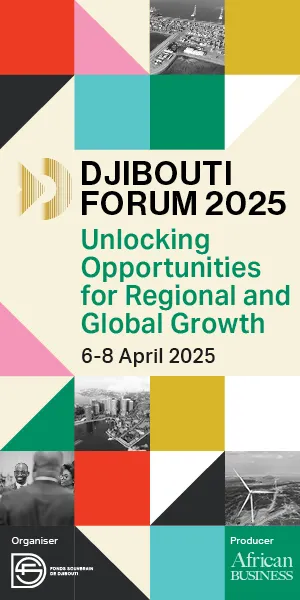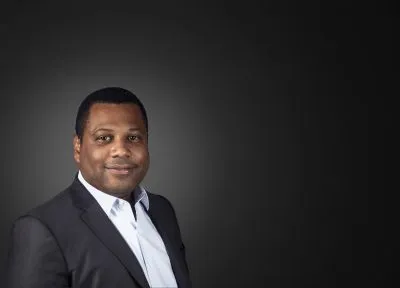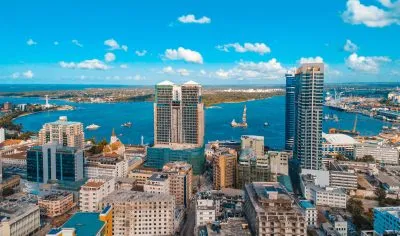He has been voted African of the Year and Most Influential African more times than any of his contemporaries. What makes Rwanda’s President Paul Kagame tick? Anver Versi went to find out.
I set off, from Mombasa, Kenya, for my interview with Rwanda’s President Paul Kagame just after Christmas. The traffic was a noisy confusion of heavy trucks, matatas and tuk tuks. Kigali, the Rwandan capital, was an astonishing study in contrast – not a pot hole in sight, painted and beautifully tended verges and although traffic was heavy due to the holiday season, road discipline was immaculate.
The city was festooned in fairy lights to celebrate the festive season. It was a lovely welcome and told me immediately a great deal about what the people of this small nation think of themselves and their value systems.
My meeting with the president was scheduled for after the end of Umuganda. On the last Saturday of each month, all able-bodied Rwandans, including the head of state, set out to clean and improve their neighbourhoods from 8am to 11am. Shops and business are closed during this period and traffic comes to a halt.
The result is a sparkling city, officially the cleanest in Africa and vying with Singapore as the cleanest in the world. Rwanda’s rise from the genocide of 1994 has indeed entered history as an example of a resilience that is nothing short of miraculous. The economy has also risen from the ashes of that period to become one of the fastest growing in the world over the past two decades. The first factory to make smartphones from scratch in Africa was opened in October last year and given its reputation of zero corruption, there is a long line of investments in the pipeline.
While there is no doubt that the heroes and heroines of Rwanda’s extraordinary redemption are the Rwandese themselves, there can be no side-lining the figure who halted the genocide 25 years ago and has overseen the country’s remarkable transformation every step of the way: President Paul Kagame.
Over nearly four decades as editor of New African and African Business magazines, I have closely observed and followed the careers of a host of African leaders – many of them remarkable people – but Kagame seems to be cut from a totally different cloth.
He is a man of action rather than words; he believes in results rather than promises; he is pragmatic rather than idealistic; he eschews the trappings of power rather than cultivating them; he refuses to kow-tow to big powers and insists on being treated as an equal; he has been a fierce defender of not only Rwandan but also African rights and aspirations in international fora and he is proud to be an African and to celebrate the African genius in deeds and achievements rather than empty rhetoric.
The audience
Paul Kagame, dressed in simple civilian clothes, strides in briskly, has a firm handshake and gets down to business. He speaks softly, often pausing to emphasise a point. He has a quiet but sharp sense of humour often slipping in an ironic twist. I start by asking him whether the former colonial systems of governance, which most African countries have adopted lock, stock and barrel, are fit for purpose in dealing with the realities of post-independence Africa.
“Given our history,” he says, “it’s really up to Africans to try and make sense of this legacy and find out what parts of it fit their purpose to be able to obtain the transformation that we all want.”
“Transformation, development don’t just happen,” he argues. “They happen because first people want them to happen. Secondly it needs the understanding of the mechanics, the industrial set up to bring about this transformation.”
The laws, the rules and regulations and the ways of doing things during colonial times served a very different purpose and needed to change at independence. “This is why I always find a problem in people being made to just swallow wholesale things that they are told to do. These are not what they think they should be doing, or are about the overall circumstances and context, but rather because somebody who used to be the master during the colonial period, thinks this is the right thing to do – therefore, it’s what you must do!”
Here, while Kagame reflects the thinking of large sections of Africa’s well-educated youth and intellectuals, he also hits a sore point. We are all well aware of African countries that rigidly toe the line from their former colonial masters and are terrified of deviating even by an inch.
African self-confidence
Why is it, I ask, that so many African countries toe the line with systems and practices even when they don’t work despite the fact that countries like Rwanda and others outside the continent like Singapore and Malaysia have followed their own line and succeeded?
He puts it down to a lack of confidence, which means people talk but often come back to old habits and old models. It is no secret that Kagame has modelled Rwanda’s development very much along the lines of Singapore; in fact, Surbana Jurong, Singapore’s award-winning urban planning company produced the masterplan for Kigali’s redevelopment as a high-class global city.
He says he finds it difficult to account for why transformation has taken place in other places while many African countries have remained stagnant. Yet, in speeches made by many countries, “we tell anybody, our own people, others who ask us any time, every week, every month, every year, things that show we understand what is at stake, we understand what needs to be done.
“Yet, year in, year out we find we are back to where we have been. There is some good progress here and there but then we slip back. We keep going around. So, you are absolutely right it’s something that we need to re-examine about ourselves.”
He reminds me that those Asian countries that the world is now singing the praises for were also subjected to different pressures from different quarters but “they endured, they rallied; and it doesn’t mean they didn’t have differences among themselves but when it came to the stake that is theirs, they came together. They were able to put their differences aside. So why can’t it be the same with Africa?”
While Kagame has his admirers across the world for his leadership of a country in the most trying of circumstances, he also has his detractors who criticise him for some perceived deviation from the standard “textbook” handed down to developing countries.
“Even after the genocide and the remarkable turnaround in the country, there were those with vested interests who continued to criticise the new government. We still believe we have a bad name because we brought changes to our country that were intended to put us in a better place.
“We are not there yet. We still have a lot of work to do but I think that one can see the pathway to where we want to be, Even the young people who were born 20 years ago, 25 years ago when this country was just emerging from this tragedy, have a sense of where we are going.”
He articulates the thoughts and feelings of millions across the continent when he says: “It’s frustrating in the sense that Africa has almost everything: the people, the resources, but the resources remain buried somewhere for others to add value, to benefit more from and for African owners to remain stranded and begging, being beaten up for this, for that and screaming… and the story goes on and on.”
He is clearly referring to the resource wars in parts of Africa, the repressive regimes and the treatment of migrants as they flee the continent for what they believe are greener pastures abroad.
“We put ourselves there – we shouldn’t do that. It doesn’t make sense. And yet we know we can overcome this but I don’t know why we don’t do it as fast as we should.”
Fourth term?
During a forum in Doha, Qatar, Kagame responding to a question, said that when his current term expired in 2024, he was unlikely to seek a fourth. Was this statement set in stone, I ask, or would his decision be dictated by circumstances?
“The trouble with answering such questions is that we are dealing with a very complicated situation because it’s not one plus one equals two, nor is it black or white and that’s it,” he replies. “However, the moment you are asked such a question, if you don’t answer it, it is even worse.”
He goes on to explain that whatever response one gave about something in the future, circumstances could change – “the ground shifts, whether it’s your own making or not.” But that does not stop people expressing their thoughts or their wishes, “so I was expressing my thoughts, I’m expressing my wish”.
Kagame’s extended tenure, which could see him remaining in office until 2034, has sharply divided opinions both in Africa as well as abroad. There are those who insist he should have stepped down when his second term expired in 2017 and those who say that the last thing Rwanda needs now is divisive politics and a no-holds barred grab for power. They point to Lee Kwan Yew’s three decades in power in Singapore during which he set the foundations for his country’s success.
When it comes to Kagame, even his strongest critics admit that he is immensely popular and that his track record, everything considered, shines very brightly in modern history. Perhaps, like Lee Kwan Yew, he is a one-off – the right man at the right time in the right situation. Time will tell and in any case, he has left the option open.
Regional tensions
The last year for the country was marred by a fraught relationship with its neighbours, Uganda and DRC. Yoweri Museveni, Uganda’s president, had been Kagame’s comrade in arms when both fought for the liberation of their countries and they were fast friends before the falling out between the two countries. At the time of going to press, the border between them had been closed, affecting thousands of petty traders.
I ask President Kagame the reason behind the current animosity.
“We have a lot to build on to make us successful, both of us. But for some reason this hasn’t turned out to be the case. That’s where it gets lost and I don’t find clear answers. If I have the means to make a good contribution towards resolving that, I’m happy to do that,” he says.
As a background to the troubles, he says that for a while, Rwandans who had gone to Uganda (where many have kith and kin), were arrested. Some of them were tortured, many lost their properties and had their trading goods confiscated; some were imprisoned in unknown locations and were not tried in a court of law. Some of them have been kept in prisons without charge for up to two years.
Many of them, who were then dumped across the border, had harrowing tales to tell. When the matter was raised at diplomatic level, the Ugandans, according to Kagame, said the people had been spies, they were on their way to Lebanon as spies.
Kagame looks incredulous. “We are talking hundreds of people, not five or ten. For Rwanda to be sending hundreds of spies to Uganda would be a very expensive exercise indeed!” And, none, he adds, is ever brought to a court of law.
But what seems to really irk the Rwandan leader is the belief that Uganda is harbouring and entertaining criminals, including some ministers caught up in corruption charges, who have fled Rwanda and set themselves up in opposition. He says he does not understand why Uganda should involve itself in internal Rwandese politics.
He says he has even travelled to Uganda to raise these matters. “When we have met in conferences, we have talked about it. But it keeps going round and round.”
The development should be looked at from the broader security situation in the sub-region. The defeated Interahamwe, the far-right Hutu paramilitary organisation that was largely responsible for the genocide, has based itself in parts of DRC and Uganda where they are seen as a highly dangerous, disruptive influence. Both countries would like to expel them, but as long as the RPF continues to rule in Rwanda, they cannot find a way back.
This partially explains the rather bizarre statement of the former premier of DRC, Adolphe Muzito, urging his government to wage war on Rwanda and even occupy and annex part of the country. Saying that, he insists that the relationship with the DRC and President Tshisekedi, who has visited Rwanda at least three times since he was elected President, are the best they’ve been in twenty years.
Getting heard
So where does Africa stand within the current global environment, including with regards climate change and the drift to authoritarian, right wing governments; what would his priorities be if there was such a position as president of Africa and he were it?
“I am not looking to be and I don’t want to be presumptuous on that. The first thing is to try as much as possible to bring Africa together.
“Because Africa remains fragmented, therefore that means there is no voice that can be called an African voice: it’s Rwanda, it’s South Africa, it’s Nigeria, it’s Senegal, it’s Ethiopia, it’s Kenya, Tanzania, separately. What that means is even the biggest countries of our continent, alone they are small.
“The bigger entity we can be by coming together, the better we can represent ourselves as Africans and stop playing in the hands these people who divide us, and they divide us for a reason, because they want us to remain small. It is like if you want to eat something, you chop it into pieces. We need to create that thing that cannot be swallowed by anyone.
“Knowing how difficult it is, we cannot expect all the countries to come together into one bloc all of a sudden, but we can use different approaches and tactics, like the sub regional blocs. Even if three countries decide to say ‘please listen’ you are still increasing your chance of making an impact on the global scene and avoid being trampled by the heavyweights.
“We are not only seeking survival, we are also seeking partnership and this is how we are going to develop and put to good use the resources we have, to build and transform our countries. That would be my preoccupation.”
As our interview comes to a close, I ask him about Rwanda’s sponsorship of the English Premier League (EPL) team Arsenal’s kit with the logo: Visit Rwanda. It has caused a considerable stir because this kind of bold advertising strategy is rarely associated with African countries.
Nevertheless, since EPL matches are televised worldwide and Arsenal has tens of millions of fans globally, Rwanda has thrust itself right to the forefront of possible destinations to visit: has the investment been worth it?
“Critics are very lucky, they are not accountable” he says with a smile. “I am accountable and the investment we made with Arsenal has produced good results. We are seeing an increase in numbers of visits. I think we probably gained not less than five times what we were spending, absolutely.”
The deal has been so good, Kagame tells me, that a similar one is being finalised with Paris Saint-Germain, probably the most famous football club in France. Rwanda expected somewhere near 17m visitors this year and the numbers should go up when the new airport, in which Qatar Airways has taken a 60% stake, is completed.
And did he have any advice to the new manager? “The players have to change, they have got to bring in new players. The owners also have to be looked at, because they are stuck in the past. I still love Arsenal, they have DNA of the good game, but in the end you are not just playing for the sake of playing you are playing also to win.” It is this winning mentality that Kagame seems to have engendered throughout Rwanda.
Want to continue reading? Subscribe today.
You've read all your free articles for this month! Subscribe now to enjoy full access to our content.
Digital Monthly
£8.00 / month
Receive full unlimited access to our articles, opinions, podcasts and more.
Digital Yearly
£70.00 / year
Our best value offer - save £26 and gain access to all of our digital content for an entire year!
 Sign in with Google
Sign in with Google 



